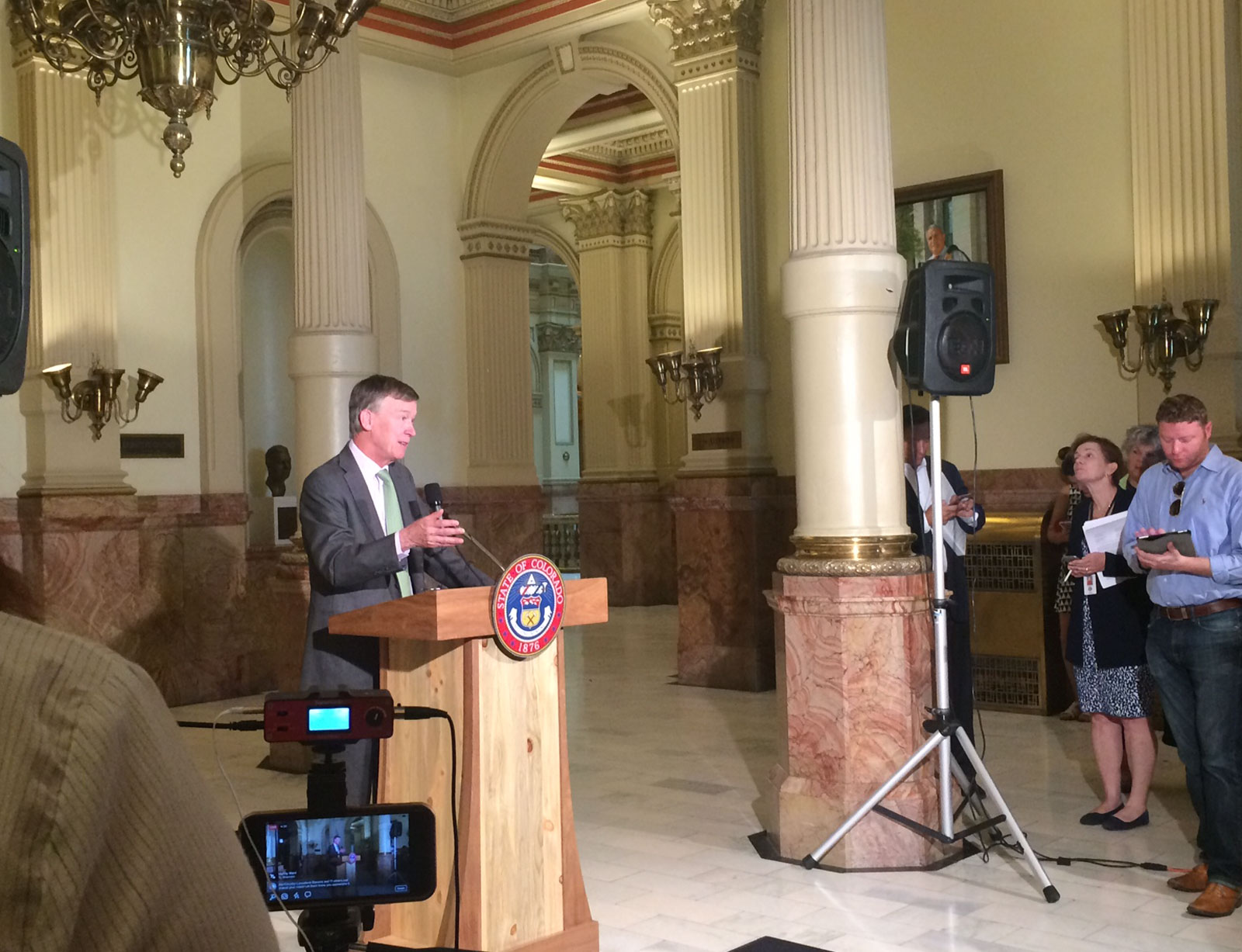The Local newsletter is your free, daily guide to life in Colorado. For locals, by locals.
Colorado Gov. John Hickenlooper and Republican Gov. John Kasich of Ohio on Thursday morning released their awaited bipartisan plan on how to improve the affordability of health insurance and stabilize the market.
In a letter dated August 30, the unlikely pair offered a list of suggestions to congressional leaders—and, less directly, to the Trump administration—as a collection of guiding principles by which they hope the House and Senate will address health care reform efforts when the legislative session resumes on Tuesday.

Their plan prioritizes immediate fixes to stave off long-term damage to health insurance markets, which have been rattled by recent political uncertainty, calls for allowance of state-led innovation, and leaves space for further long-term discussion around policy.
“Lots of these ideas are Republican ideas,” Gov. Hickenlooper said at a press conference at the Colorado State Capitol on Thursday morning. “Lots of these are Democratic ideas. I know it’s almost sacrilegious to say Democratic ideas and Republican ideas could come together and make something better, but that’s the way things used to happen in this country—not that long ago.”
Notably, what the bipartisan letter does not call for is repealing and replacing the Affordable Care Act (ACA), which Republicans have been championing for almost eight years. Optional Medicaid expansions for states created through the ACA, which Colorado opted into, are responsible for the significant increase in insured individuals in Colorado. According to the Colorado Health Institute, more than 400,0000 individuals received coverage through expanded eligibility for Medicaid.
Rather, the letter lists various actions to maintain access to health insurance and to prevent cost increases, primarily through the stabilization of the markets, which the governors wrote is the most pressing concern demanding immediate legislative action. It goes on to offer a “menu” of possible policy items by which to achieve these outcomes.
The governors call on the Trump administration to continue funding cost-sharing reduction payments, a hallmark of the ACA that has helped to enable expansion of coverage particularly to low-income populations. In recent months, Trump has threatened to stop funding these subsidies, in an effort to force the ACA to “implode.” The Congressional Budget Office (CBO) has found that if these payments cease, premiums for some health insurance plans would increase by as much as 20 percent next year, and the federal budget deficits would swell by $194 million in a decade.
The governors also ask Congress to create a “temporary stability fund” to continue federal funding of reinsurance programs, which the pair hope will enable security that’s currently lacking in the insurance industry, which is driving premiums up.
Hickenlooper said Thursday morning that he believes funding reinsurance programs—which use federal dollars to keep premiums artificially lower in high-cost pools where not enough healthy people have bought insurance—is an upfront cost that will pay off in the long run. He said he believes that if insurance is made more attractive through lower premiums, younger, healthier populations will eventually choose to purchase insurance, in turn decreasing premiums over the long term.
The letter also states a need for competition in rural counties underserved by insurance providers. Interestingly, the governors suggest that Congress allow residents in these areas to buy into the Federal Employee Benefit Program, which would give residents access to the same health care as federal workers.
Hickenlooper and Kasich, as well as governors from six other states, including Bill Walker of Alaska, Brian Sandoval of Nevada, John Bel Edwards of Louisiana, Tom Wolf of Pennsylvania, Steve Bullock Montana, and Terry McAuliffe of Virginia, signed the letter.
Read the governors’ complete letter to congressional leaders.








